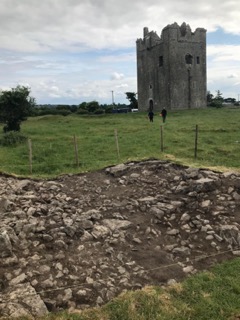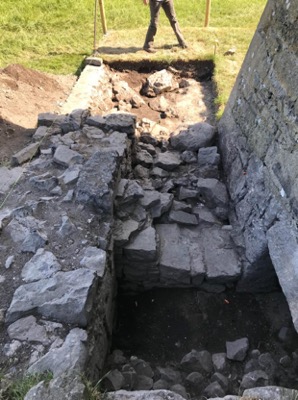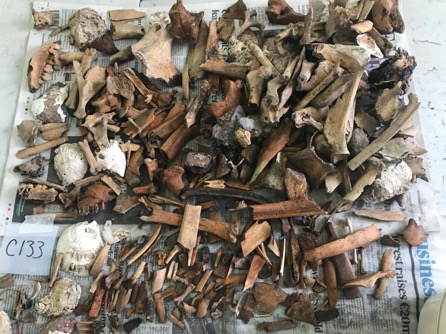
BA in Archaeology, 2019
Questions & Answers by Elizabeth Paliga
- What inspired you to pursue a career in archaeology?
I remember attending a lecture my Freshman year on the construction of the Chrysler and Empire State Buildings in New York. As I sat there, a declared International Relations major, I realized one of the things I most loved about exploring the world and traveling was the built environment, both the macro and micro. My first archaeology class, Archaeological Mysteries, I was hooked. There’s so much to learn from the past, and even though I don’t get to dig in the dirt much anymore, I constantly use the skills I learned at BU in my work to advocate for the wisdom and knowledge of the world’s history.
- Is there a piece of advice or conversation you’ve had with a professor that has stuck with you throughout your career?
My Junior year, I studied abroad in Rome through the Intercollegiate Center for Classical Studies. While not a BU-lead program, my time spent in Italy remains a highlight of my archaeological career. There, I learned that archaeology is as much translation of objects and landscapes as it is of words. The faculty at the ICCS impressed upon me that the past can be vivacious, energetic, alive and light-hearted. I continue to practice this in my professional life. Be bold, be excited, never lose the wonder of touching, seeing or protecting historical remnants, and share that excitement with others, because not everyone has the knowledge to translate their meaning as we do.
- What has been the most challenging aspect of pursuing archaeology, either academically or professionally, and how have you navigated it?
I realized early on that I did not want to work in the academic field, at least not right away. The challenge was finding the right professional niche that allowed me to practice my archaeological skills while also encouraging exploration into my other passions: advocacy, architecture, intangible heritage. I found the right fit for me, but it required creative thinking and marketing of my abilities and a certain vision to look beyond the traditional archaeological pathways.
- Looking back, how has your perspective on archaeology evolved from when you first started studying it to where you are now?
I thought I would be digging a lot more in the dirt! Alas, technology has improved to where destructive excavation is not as common as it used to be, which is a net positive, but I do miss getting my hands dirty, the ache in one’s knees after a long day troweling, and the excitement of a new find! Archaeology is much more nuanced and varied than I first appreciated. Also, there is a lot in the historical record of humanity that is relevant and useful in today’s changing climate and culture. Archaeology has a role in shaping our collective future.
- Is there anything else unique to you that you’re willing to share (especially fieldwork experiences)?
Boop a snoot. I had the immense pleasure of digging at a tower house in Ireland one summer, and the joys of exploring the modern culture of the area while simultaneously uncovering objects from its past was incredibly interesting to put into perspective with one another. Our dig site was also home to cows and I spent lunch breaks coaxing them within petting distance. When you’re out there in the world, take advantage of every opportunity, say yes to the adventures or excursion, and make the most of your field experience.




